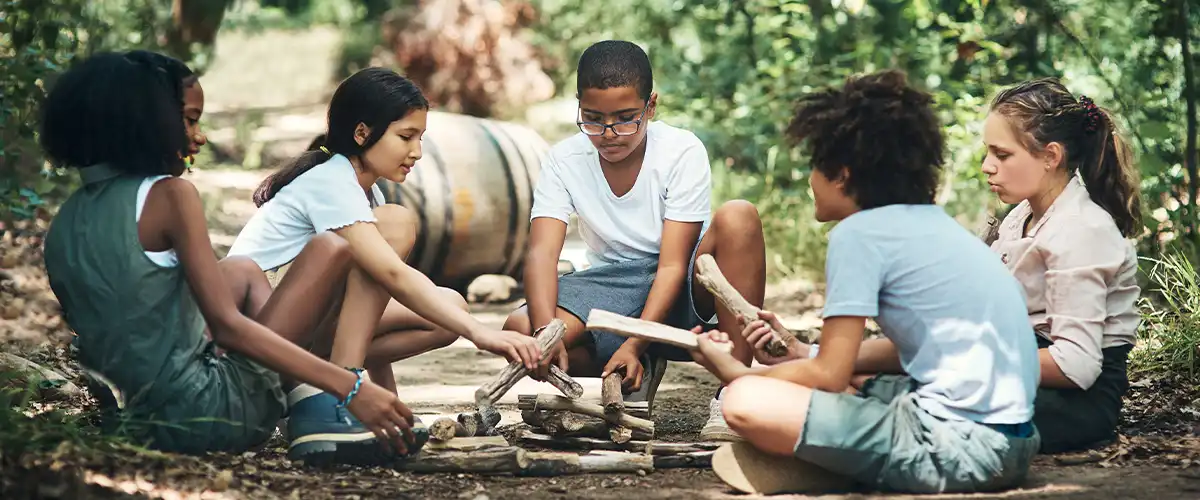As a homeschooling parent and educator, I believe that while academics are important, they aren’t the sole measure of a child’s development. My experiences have shown me that qualities like resilience, self-confidence, and the ability to navigate life’s challenges are just as crucial, if not more so, than traditional academic achievements. In this article, I’ll share why I believe that focusing on nurturing these qualities, alongside academics, can offer our children a more well-rounded and fulfilling education, ultimately preparing them better for life’s challenges.
Table of Contents
Why I Don’t Stress About Traditional Academics
The Limits of Academics
As a homeschooling parent and educator, I’ve often found myself reflecting on the role of traditional academics in our children’s lives. It’s undeniable that academics are important—they teach fundamental skills and open doors to future opportunities. But are they the most important thing? I don’t believe so.
Even as a student, I saw many young men who had a great natural ability but who did not have the self-discipline and patience to build on their endowment. – Nelson Mandela, Long Walk to Freedom
Nelson Mandela, in his book Long Walk to Freedom, wrote, “Even as a student, I saw many young men who had a great natural ability but who did not have the self-discipline and patience to build on their endowment.” This is one of the first passages that stuck with me when reading the book. Mandela’s words reflect a broader truth: potential is only part of the equation. Without discipline, experience, and resilience, even the brightest talents can falter.
My own experiences mirror this sentiment. When I was applying to study architecture as an older student relative to the other applicants, I doubted myself because I believed my artistic skills were lacking. I could draw stick figures, that was about it. But one professor’s words changed my perspective: “We can teach you to draw. That’s not important. We want people with life experience. That’s not something you can teach.” The school approved my application, with what I very embarrassingly believe was one of the most ridiculous portfolio submissions they must have ever seen. Over time, I learned that artistic skill, like any other, can be learned. But the way of seeing the world—the “artistic eye”—comes from lived experience, not textbooks. The more life experiences you have – the more you can cast yourself and your role in this world in a broader perspective – the more meaningful your life will become.
I sometimes tell my kids that there is no blue without red. The color blue would be meaningless without another color to compare it to. But imagine how much more “blue” blue will be next to red, yellow, and green.
The Power of Life Experience
There is little favorable to be said about poverty, but it was often an incubator of true friendship. – Nelson Mandela, Long Walk to Freedom
There’s another passage from Mandela’s book that resonates deeply with me: “There is little favorable to be said about poverty, but it was often an incubator of true friendship.” He’s reflecting on how the shared challenge of poverty can foster deep, genuine friendships.
This “trueness” Mandela speaks of is something I find incredibly important to teach my kids early on. It applies to many aspects of life—true confidence, true empathy, true effort, true humility. The word “true” in this context reflects something profound about ourselves, and it’s a quality most readily and joyfully achieved in good company. This belief is one of the reasons I started the Let’s Go Avocado Club, our bi-weekly science and nature exploration group for local families. Poverty is not the only incubator of “trueness”; challenges can be academic, artistic, physical—the key is that they are shared.
The gift we can give our children through homeschooling is the opportunity to experience this “trueness” early in life, perhaps even earlier than we did ourselves. These experiences lead to resilience, self-confidence, empathy— qualities that aren’t easily acquired through academics alone. They are forged through real-life experiences, through facing hardships, overcoming obstacles, and learning from both successes and failures. This is why, while academics are important, they aren’t the most critical aspect of our children’s development. Life experiences shape who we are in ways no curriculum can.
Nurturing the Whole Child
As parents and educators, we often feel pressure to ensure our children excel academically. But we must remember that we cannot shape their destinies by focusing solely on academic success. Instead, we can influence their futures by helping them build self-confidence, find their moral compass, and develop empathy and resilience. These are the qualities that will guide them throughout their lives.
Yes, academics are essential. Children need to learn math, reading, and writing. But these should be learned at their own pace, without unnecessary pressure. More importantly, we should focus on nurturing the whole child, encouraging them to discover who they are and what they are capable of.
If your child reads early, writes early, or excels in math, that’s wonderful. But if they don’t, it’s okay—life isn’t a race. Take your time, go at their pace, and work on developing their character. That’s the greatest gift homeschooling can offer.
This is why I don’t stress too much about traditional academics. I believe that by focusing on life experiences, resilience, and self-discovery, we equip our children with the tools they need to navigate the world with confidence and purpose. In the end, these lessons will serve them far more than any academic achievement ever could.

There’s a lot to explore right where we are, in our own neighborhoods and backyards! Join us while we get off the couch and explore the everyday wonders of nature, science, space, engineering, art, and anything else we stumble upon during on our adventures.



